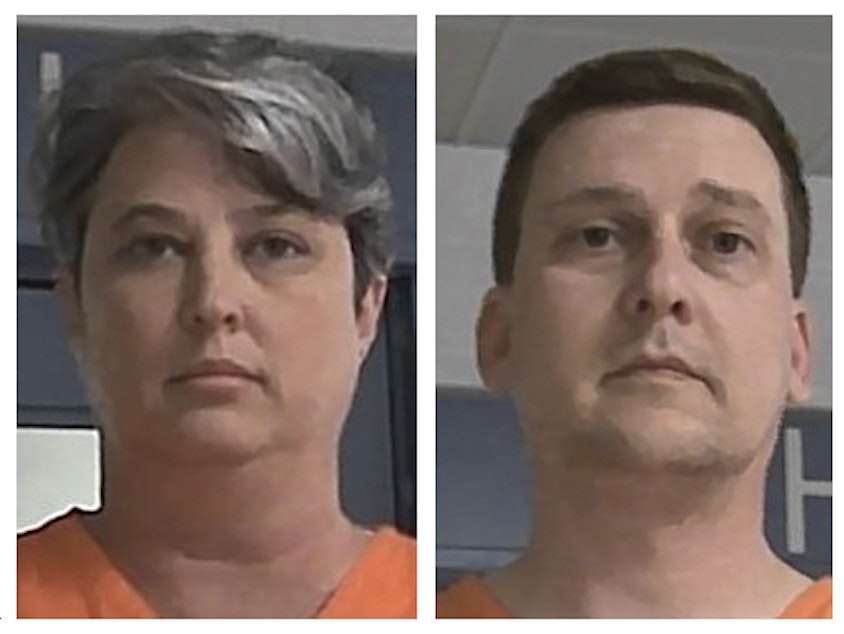The FBI is still looking for a trove of nuclear sub secrets in an espionage case

The FBI has not recovered the vast majority of secret documents related to nuclear submarines that a U.S. naval engineer is accused of trying to sell to a foreign power, an FBI agent testified Wednesday.
Special Agent Peter Olinits said the FBI also hasn't been able to find the $100,000 in cryptocurrency that it gave the defendants — Jonathan Toebbe, who worked on nuclear propulsion for the Navy, and his wife Diana — as part of the sting operation that led to the Maryland couple's arrest.
The Toebbes, who were arrested earlier this month, have been indicted on espionage charges — one count of conspiracy to communicate restricted material and two counts of communicating restricted data.
Prosecutors say Jonathan Toebbe tried to sell thousands of pages of documents containing secrets about the U.S. Virginia-class nuclear submarine to an unnamed foreign country. The U.S. government says Diana Toebbe acted as a lookout when her husband left information at so-called "dead drops" for someone the couple thought was an agent of the foreign power, but was in fact the FBI.
In federal court Wednesday in Martinsburg, W.Va., both of them pleaded not guilty.
Sponsored
Jonathan Toebbe waived his right to a detention hearing and was ordered to remain in custody pending trial.
How the defendants were arrested
During a hearing on whether Diana Toebbe should also remain in custody ahead of trial, the FBI's Olinits described the operation that led to the Toebbes' discovery and eventual arrest.
Prosecutors played for the court three surveillance videos taken by the FBI that Olinits said showed Jonathan Toebbe leaving digital memory cards at the dead drops as Diana acted as a lookout.
Olinits also said that in a search of their home, agents discovered a large bag full of shredded documents, a "go bag" with a computer, USB drive and latex gloves, as well as $11,300 in cash.
Sponsored
Olinits testified that the FBI has not recovered the $100,000 in cryptocurrency that the bureau provided the Toebbes as part of the sting that nabbed them, nor has it recovered 50 packets of restricted data that Jonathan Toebbe allegedly offered to sell for $5 million.
Prosecutors argued for Diana Toebbe to remain in custody, arguing that she poses a flight risk. They also said she might know where the missing secret documents are and be able to sell them still to the highest bidder.
Toebbe's lawyers pushed back against the picture presented by the government.
One of her attorneys, Edward MacMahon, argued that prosecutors had presented no evidence that Toebbe knew what her husband was allegedly up to.
"Other than your suspicion," MacMahon said to Olinits, "you don't have any evidence whatsoever that she knew what Jonathan Toebbe was doing with these plans he took from the Navy Yard, do you?"
Sponsored
"No recorded plans," Olinits replied. "We have a lot of digital evidence to review at this time."
MacMahon argued for Toebbe to be released on bail with conditions such as location monitoring, so she can care for the couple's two children while the legal proceedings play out.
Magistrate Judge Robert Trumble did not make a ruling Wednesday. [Copyright 2021 NPR]



